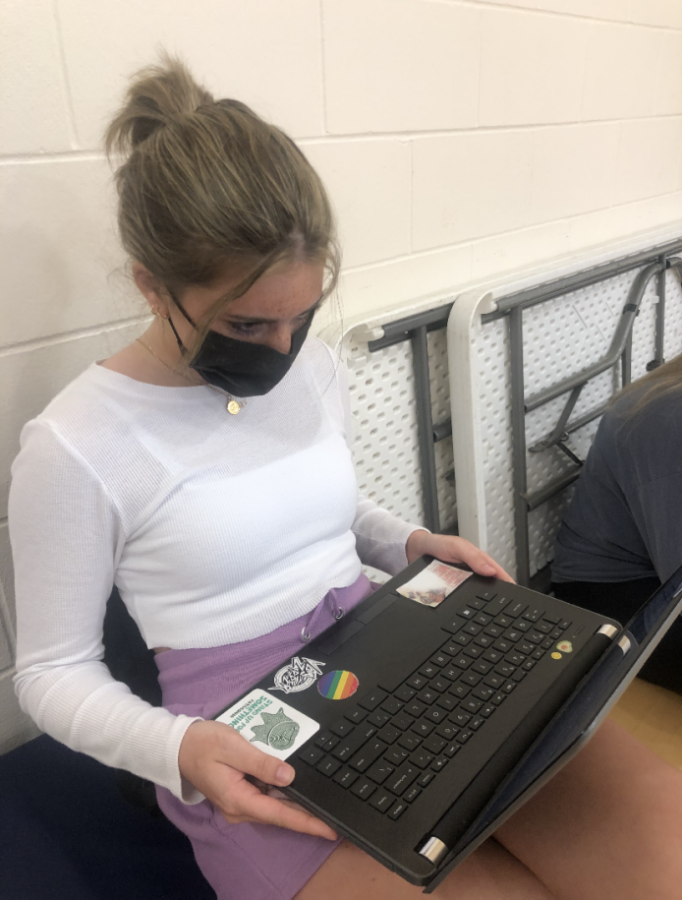There has always been a stigma surrounding mental illnesses, regardless of what type it is. Society has demonized people with mental illness, and this has created a multitude of issues for people who are already struggling.
But, there has been progress made in the world of mental illness. Mental disorders like depression and anxiety have gained more awareness, removing the stigma surrounding them. However, other mental disorders still remain taboo.
Mental disorders like schizophrenia, dissociative identity disorder and bipolar disorder are some examples of disorders that have been demonized. There is a lack of awareness and education on these disorders, leading to a greater stigmatization of these disorders.
Stigmas are detrimental to those impacted by these disorders. This prevents people from getting the appropriate aid they need. Without proper awareness either, more people fail to recognize when they have these disorders, preventing care early on and further damaging mental health and self esteem.
Stigmatization is a cycle. As society has continued to outcast specific mental disorders and the people impacted by them, their impacts will continue to get worse throughout generations.
This stigma often can be seen between generations. With such a large age difference and many differences between each generation, it can be difficult for older generations to understand what younger generations are going through.
Senior Corea Conner believes that much of the stigma she notices comes from older generations. “I personally feel more of a stigma between generations. I do not feel like older generations understand what gen z has had to go through. And though it is not their fault, I often feel like they do not care and sometimes it’s they do not know how to help,” she said.
“I think people do not fully understand what mental disorders are and how they can make you see the world extremely different from a person who does not deal with them,” Conner continued.
Conner has been dealing with mental illness from a young age. “I was diagnosed with depression, attachment disorder, ADD, and anxiety disorder before I turned 7. I didn’t really know what I was dealing with back then but looking back now I see the issues I struggled with. I can not remember a time where I was truly happy and to be honest a time where I was sad. Depression really just numbs you to all feelings,” she explained.
Public stigma impacts people who struggle with mental disorders directly. The discrimination they have to deal with can impact their outlook on themselves and the disorder itself. That can lead to internalized shame, among many other issues, which debilitates one’s self esteem
Certain mental disorders evoke more fear in people than others. As stated earlier, bipolar disorder, schizophrenia and attention deficit hyperactivity disorder (ADHD) are often viewed by society in a more negative way.
When there is less information and awareness on a mental disorder, there is more fear of it. Severe symptoms of these disorders can be dangerous to those suffering with the disorder and to those around them,but there are many other symptoms that are not generally recognized. If only these severe symptoms are brought to the general public’s attention, the fear surrounding uncommon disorders will continue to grow.
The National Alliance on Mental Illness (NAMI) provides information to the public about mental illnesses and disorders. They also provide personal stories about people who suffer with those mental illnesses and disorders. One person explained the struggle with bipolar disorder and the stigma around it.
“That’s not to say I didn’t experience stigma when my diagnosis was major depressive disorder, or that I don’t face stigma when it comes to my anxiety disorders, but the nature of my relationship to my illness changed when my label shifted from something people dismissed, trivialized and misunderstood to something that—on top of all the rest—people were legitimately afraid of,” the anonymous NAMI source said.
There is a difference between the way society views anxiety versus bipolar disorder, and this person saw the difference. While the source dealt with both anxiety and bipolar disorder, it was evident that there was a disconnect between how the two mental disorders were viewed by society.
Senior Julia Leach has struggled with various mental disorders since she was a kid, and she has noticed the stigma that has been a part of her life. “ I was diagnosed with ADHD in kindergarten which would later go on to help with my diagnosis of bipolar disorder. I was diagnosed with OCD, anxiety and depression around the same time. I was later diagnosed with mild Tourette’s. I have used meds and humor to help with them,” she said.
“I have noticed a stigma around it with older generations. They have taught us that we are supposed to suffer in silence or ignore it. The stigma around it has started with movies and books. In those stories, characters with mental illnesses are seen as monsters or evil which makes viewers think that all mentally ill people are like that,” Leach continued.
For Leach, there was a difference in the way that her various mental disorders were accepted by the people around her. This is the reality for many people struggling today. The shame that surrounds mental disorders can silence the voices of these people who deal with these disorders, leading them into this battle alone.
Leach realizes that her voice can be used to help others. “[The stigma] used to impact me. I felt like I couldn’t talk about the things going on in my life until I realized that my story might help others during their battles. I have learned to never judge someone by their mental illnesses. I think in order for the stigma to disappear, we all need to speak out and share our stories. We need to advocate for mental health,” she explained.
While mental health as a whole needs to gain more awareness and become destigmatized, the demonized mental disorders need to get on a level playing field with non-demonized mental disorders. People need to become more informed in order for society to become more accepting. The demonization that people struggling with mental illness not only destroys their self esteem, but it also makes it more difficult for them to receive the appropriate help.










Jake Almgren • Sep 1, 2021 at 10:42 pm
I don’t think lack of education is the reason to the stigmas surrounding mental disorders, but the unwillingness to learn about mental health and disorders. Another thing that adds to the stigmas is the stupid people on the internet that fake having mental disorders just for the attention. Also, I don’t think that people are really scared of mental disorders, some people just don’t have the energy to compensate for that person’s mental disorder.
Makayla Clark • Sep 1, 2021 at 10:01 am
I agree with you. Someone I know has ADHD and was bullied for taking medicine to help him focus. I also knew someone else who had schizophrenia and they were the sweetest person ever, they were just scared. Their child wouldn’t even go see them because they believed it was contagious. I do believe more people need to be more aware of what they do and say to another person, because sometimes it can make or break you.